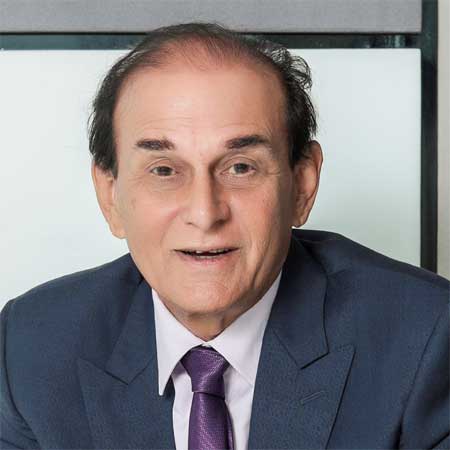Harsh Mariwala, Chairman Marico, and Kaya
Global challenges can be solved by working together: Harsh Mariwala, Chairman of Marico
SDGs are interconnected and the governments, businesses, civil society and academia must collaborate to share knowledge and resources and expertise to make the much needed progress.

About The Episode
Welcome to the full Episode 9 of Sustainability Karma, India’s first and only talk show on sustainability on All India Radio.
In this episode of Sustainability Karma, Harsh Mariwala, Chairman, Marico and CMD, Kaya, talks about passion and purpose in finding joy and working for larger good.
He is passionate about using philanthropy not only as an end in itself, but also as means to catalyse change. Discussing about Corporate Social Responsibility (CSR) and philanthropy, he says that CSR is mandated for corporations, where a certain percentage of profits must be spent on socially responsible activities, and philanthropy is more individual or family-driven. Historically, wealthy families like the Birla and the Tatas in India have a tradition of giving back to society, creating a rich heritage of philanthropy. However, this practice has been more prevalent among the wealthier class and hasn’t permeated to the lower and upper-middle-income segments.
Elaborating on the role of philanthropists in addressing societal challenges like climate change, Mr Mariwala says that philanthropists can help bridge financial and technical gaps by supporting initiatives, facilitating partnerships, and focusing on sustainable solutions. He highlights collaboration, innovation, and equity as key elements for accelerating progress toward Sustainable Development Goals (SDGs).
Refuting that philanthropy requires significant financial contributions, he says that even small, collective efforts can make a substantial impact. Dispelling the misconception that philanthropy is primarily about financial donations, termed as cheque-book philanthropy, Mr Mariwala asserts that it goes beyond financial contributions and includes giving time and putting in effort. There is a need to change this perception and highlight options for individuals interested in contributing to various causes. He emphasises that awareness needs to be raised. He says it calls for talking more about philanthropy, sharing success stories, and providing more giving options to people.
Saying that individuals in their later years should consider giving back to society, Mr Mariwala highlights the mental and social benefits of staying engaged. Sharing his experience about what drives his philanthropy, he emphasises the importance of identifying a purpose in life and the joy derived from active involvement in societal good.

